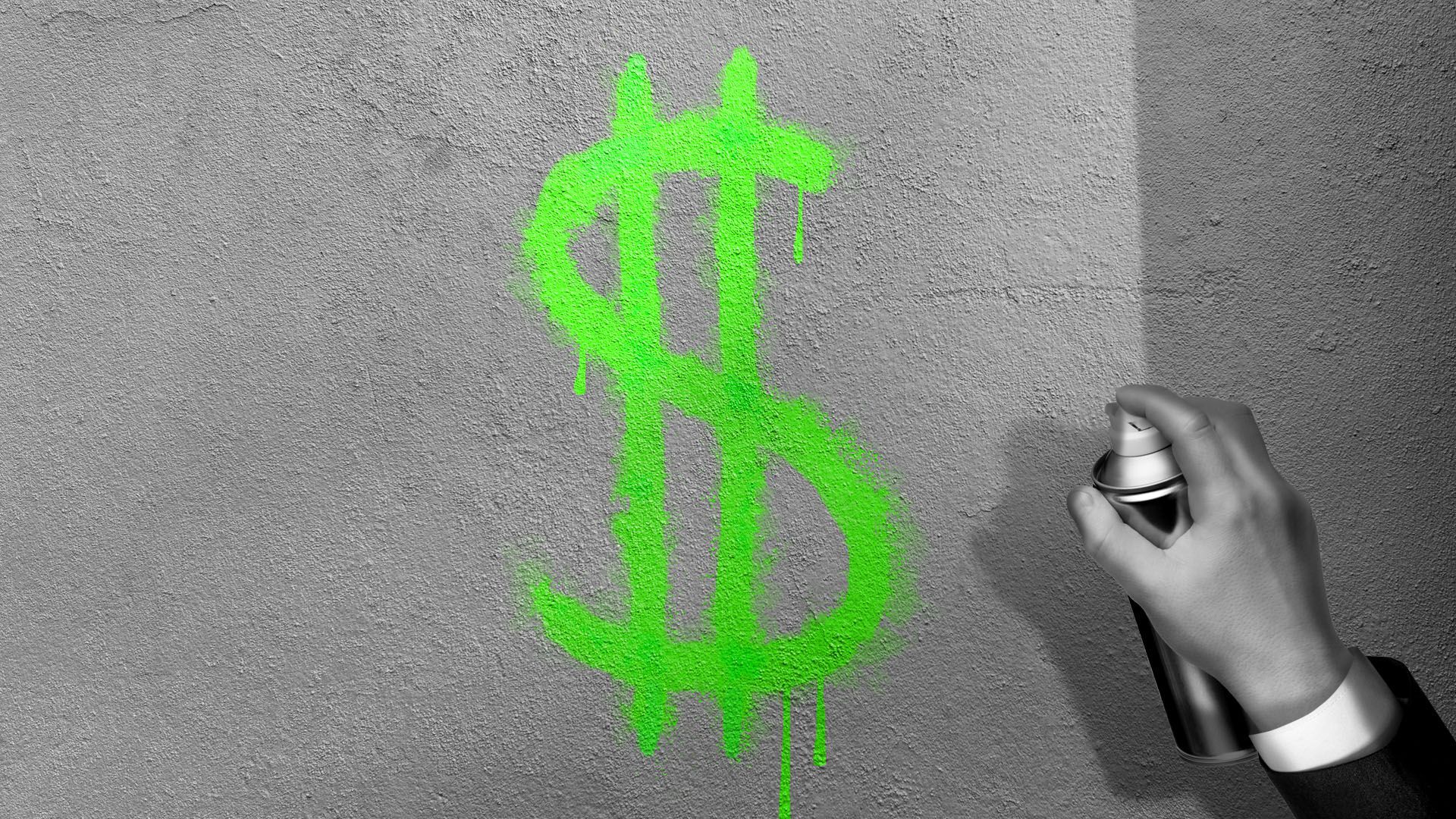| | | | | | | Presented By NetJets | | | | Axios Markets | | By Dion Rabouin ·Oct 26, 2020 | | Good morning! Was this email forwarded to you? Sign up here. (Today's Smart Brevity count: 1,244 words, < 5 minutes.) 📺 Tonight on "Axios on HBO": Watch interviews with Rep. Ilhan Omar, Sen. Ted Cruz and biochemist Jennifer Doudna, who talks about her recent Nobel Prize with Emmanuelle Charpentier, and the possibilities that their gene-editing technology CRISPR could unleash. - Tune in at 11:16 pm ET/PT on all HBO platforms.
🎙 "The mind and the voice by themselves are not sufficient."- See who said it and why it matters at the bottom. | | | | | | 1 big thing: Bond investors see brighter days |  | | | Illustration: Sarah Grillo/Axios | | | | U.S. government bonds could breakout further after yields on the benchmark 10-year Treasury note ticked up to their highest since early June last week. - But strategists say this move is about an improving outlook for economic growth rather than just inflation.
What it means: Economic growth comes with inflation but for much of the year investors have been betting the massive increase in the U.S. money supply as a result of stimulus efforts from the Fed and Congress would deliver inflation that might not include growth. - That led to a bonanza for gold, silver, Treasury Inflation-Protected Securities and other inflation hedges, and a decline in the dollar.
- But those assets have reversed much of their earlier gains of late and remained tied down in tight ranges while U.S. government debt yields have surged.
What we're hearing: There's a clear pickup that began after the first presidential debate on Sept. 29, as investors have bet on a Joe Biden victory and blue wave Democratic takeover of Congress that could lead to substantial government spending, including an infrastructure bill. But it's not all politics. - It's about "a bounce in economic activity, writ large, expectations of a little more inflation from Fed policy and natural economic trends as well as those politically related issues," Guy LeBas, chief fixed income strategist at Janney Montgomery Scott, tells Axios.
The intrigue: Yields on the 10-year note are even edging above their 200-day moving average for the first time since December 2018, Reuters notes. Watch this space: Net short bets on the 30-year Treasury bond — which has seen yields jump by 19 basis points since Oct. 1 — reached an all-time high earlier this month, reflecting investors' bets that yields will continue to rise. - "It may now be time to flip thinking on U.S. rates where instead of mechanically buying dips ... upticks in bond prices now need to be sold," analysts at Citigroup wrote in a note to clients Friday.
Where it stands: Top Fed officials, including vice chair Richard Clarida and governor Lael Brainard, have suggested that the Fed could ratchet up its bond-buying program, especially longer-dated bonds, pushing up prices and reeling in yields. - But analysts believe the Fed will stand pat if lawmakers can produce a fiscal spending package.
- "If long-term interest rates rose along with economic confidence and more supply from fiscal authorities, I don't think the Fed would alter their bond-buying plan," LeBas says. "That's what they want."
|     | | | | | | Bonus chart: Where stimulus is needed most |  The Census Bureau's latest survey of Americans' forward-looking economic expectations found a particularly dour outlook. - Three of the country's four most populous states expect to see at least one in four citizens lose some employment income in the next four weeks.
Don't sleep: Governor Brainard became the latest member of the central bank to unequivocally call for Congress to produce another fiscal stimulus package during a speech last week. - "Apart from the course of the virus itself, the most significant downside risk to my outlook would be the failure of additional fiscal support to materialize."
- "Premature withdrawal of fiscal support would risk allowing recessionary dynamics to become entrenched, holding back employment and spending, increasing scarring from extended unemployment spells, leading more businesses to shutter, and ultimately harming productive capacity."
The big picture: In addition to being an influential member of the Fed, Brainard is seen as likely to be the next Treasury secretary or Fed chair if Biden wins. |     | | | | | | 2. Catch up quick | | Economists have analyzed Biden's economic plans to predict how they would impact everything from GDP to jobs. But they've been unable to do the same with President Trump's plans, because there are none. (Axios) The U.S. logged 83,718 COVID-19 infections Saturday, a day after Friday's record 83,757 cases (WSJ). Dunkin' Brands is nearing deal to sell itself to private equity-backed Inspire Brands for a 20% premium over Friday's closing price, giving the company a value of around $8.8 billion. (N.Y. Times) |     | | | | | | A message from NetJets | | Cares Act benefits ending soon | | |  | | | | Because of the stimulus bill, the 7.5% federal excise tax on private aircraft ownership is waived through December 31. To take advantage of these incredible savings, become a NetJets Owner. Learn more about the advantages – before the savings end. | | | | | | 3. Banks are paying record low interest and charging record high fees |  Reproduced from Bankrate; Chart: Axios Visuals The average yield bank customers get for interest-bearing checking accounts tied a record low of 0.04% this year — yet fees for having such an account and the minimum balance required to avoid such fees both rose to record highs, according to Bankrate's 2020 checking account and ATM fee study. - The average fee for insufficient funds rose 0.3% to $33.47, also the highest it has been in the 23-year history of the annual study.
Yes, but: There was some good news for consumers in the study. - The total average cost of using out-of-network ATMs decreased slightly, down 8 cents to $4.64, the lowest since 2016.
- Average monthly fees hit a six-year low of $5.27.
- 47% of accounts that don't pay interest were free.
|     | | | | | | 4. Global protests are picking up again | | The coronavirus pandemic quelled protests that had been taking place around the globe, as many feared large gatherings could spread the virus but in recent weeks some have picked back up and new ones have begun. What's happening: Chileans voted overwhelmingly to amend the country's constitution on Sunday in largely peaceful elections. Last week, uprisings picked up and protesters set two churches on fire and looted stores. - Protests in Belarus escalated over the weekend with police using stun grenades against protesters as more than 100,000 marched in the capital city demanding President Alexander Lukashenko resign.
- Beyoncé and other popular music artists shined a global spotlight on Nigeria's ongoing protests over police brutality and the Special Anti-Robbery Squad (SARS) last week after footage went viral of the squad beating a man to death.
- Protests against the monarchy and current government administration in Thailand have brought a student-led movement to the streets reminiscent of the early days of protests in Hong Kong that destabilized the city last year.
|     | | | | | | 5. Wall Street is living up to its bad reputation |  | | | Illustration: Sarah Grillo/Axios | | | | Axios' Felix Salmon writes: Recent headlines will have you convinced that Wall Street is hell-bent on living up to all of its stereotypes. Driving the news: Goldman Sachs is the biggest and the boldest, paying more than $5 billion in fines in the wake of the 1MDB scandal, in which billions were stolen from the people of Malaysia. - Goldman Sachs pleaded guilty to bribing Malaysian officials, among others, with a total of $1.6 billion in order to get deal mandates in the bond and stock markets.
- That's the largest set of bribes ever prosecuted under the Foreign Corrupt Practices Act.
- In a very Goldman twist, the $1.6 billion was not paid from Goldman's own funds. Instead it came out of other people's money — it was skimmed off of bond-issue proceeds that were supposed to belong to the Malaysian people.
- Gary Cohn, who was Goldman's chief operating officer when the bribes were paid, cashed out all of his bonuses when he joined the Trump administration in 2017. He's the one former Goldman official who hasn't agreed to repay a chunk of his 2011 bonus, as the board has requested.
Wells Fargo paid a $3 billion fine for taking advantage of millions of customers by opening accounts in their names that they weren't even aware of. JPMorgan, which lost billions in the "London whale" trading scandal, paid $920 million in fines to settle charges that it manipulated futures markets in Chicago. Citigroup, which has been considered "too big to manage" since at least the financial crisis, was fined $400 million for its management's failure to effectively stay on top of its operations. Morgan Stanley paid a relatively modest $60 million fine for failing to protect its customers' data. According to a pair of lawsuits, the bank failed to remove sensitive data from computers it decommissioned — including Social Security numbers, passport numbers and account numbers. The last word: In a sign of how deep the rot runs, hundreds of bank employees have been fired from Wells Fargo and JPMorgan Chase for abusing the government's coronavirus relief programs. So far, there's little sign that banks are shedding their reputation for being greedy to the point of criminality. |     | | | | | | A message from NetJets | | Significant savings on a NetJets Marquis Card™ | | |  | | | | Become a NetJets Marquis Card™ Owner before 2021. Why it's important: For a minimum commitment and zero federal excise tax, you will gain all the advantages of NetJets ownership, beginning with traveling safely on your terms. Learn more about the advantages. | | | | Thanks for reading! Quote: "The mind and the voice by themselves are not sufficient." Why it matters: On Oct. 26, 1911, The Queen of Gospel, Mahalia Jackson, was born. Jackson also was a prominent leader in the civil rights movement and Harry Belafonte at one time described her as "the single most powerful Black woman in the United States." | | | | Axios thanks our partners for supporting our newsletters.
Sponsorship has no influence on editorial content. Axios, 3100 Clarendon Blvd, Suite 1300, Arlington VA 22201 | | | You received this email because you signed up for newsletters from Axios.
Change your preferences or unsubscribe here. | | | Was this email forwarded to you?
Sign up now to get Axios in your inbox. | | | | Follow Axios on social media:    | | | | | |








No comments:
Post a Comment